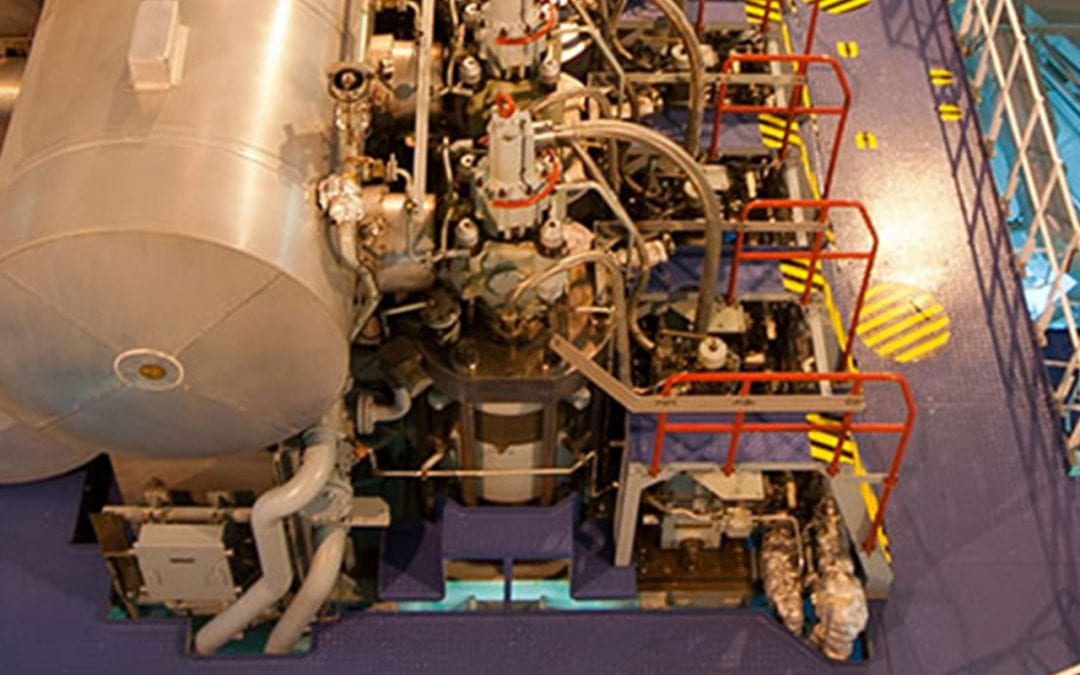Marine engines are the heart and soul of any watercraft — from small recreational boats to massive cargo ships. These powerful machines are designed to withstand the harsh conditions of the open sea while providing reliable and efficient propulsion. Understanding the different types of marine engines and their key features is essential for anyone who owns, operates, or maintains a watercraft. Let’s take a deep dive into the world of marine engines and what sets them apart from their automotive counterparts.
What are the key differences between marine engines and automobile engines?
It’s important to remember that marine engines differ significantly from car and other vehicle engines. This is down to the fact they are built for very different environments. Marine engines are typically subject to much harsher conditions. As a result, they require modifications that ensure they can stand up to the environment they need to operate within.
Here are a few key differences to be aware of:
Engine selection and corrosion protection
Typically, a boat’s engine room has more power — this is because marine engines tend to lose some power to heat. They can also lose power over time if the prop becomes rough or dinged. To protect that power from the harsher elements, you can keep corrosion at bay with marine grade coating and sacrificial zinc anodes.
Safety features
Unlike their automotive counterparts, marine engines feature extra safety considerations that are necessary for engines not used as frequently — boats tend to sit for longer periods. Components such as the alternator and starter are shielded from internal sparks that pose more of a fire risk in an enclosed engine bay. Auto shut-offs are also common where temperature fluctuations can happen more suddenly if the water cooling becomes blocked, or the closed loop coolant runs low.
Fuel and exhaust systems
Choppy conditions can cause issues for marine fuel and exhaust systems. So a boat exhaust system is designed to prevent back pressure and reduce the chance of exhaust fumes leaking into the engine bay. The fuel system modifications include thicker hoses than automotive engines. Despite the increased external diameter, they have the same internal diameter to better protect them from engine bay fires and reduce permeation rate.
How do marine engines work?
Much like automobile engines, the purpose of a marine engine is to enable a vessel to propel itself via internal combustion. Fuel is injected into the cylinders where it ignites. The resulting combustion pushes a piston that turns a crankshaft, which then powers the boat’s propeller.
A big difference here is that the mechanical energy on a boat is directly distributed to one gear — as opposed to being split across four or more for a car. This means it’s more beneficial for marine engines to utilise low-end torque at a more constant rate to power through water than a varying percentage of horsepower intermittently as you would with a car on a road.
What type of fuel does a marine engine use?
Some outboard engines on small boats use petrol, whereas some small to mid-size vessels such as narrowboats and yachts tend to use diesel. Larger vessels used for commercial shipping or long-distance cruises will use bunker fuel — a very dense, high-energy fuel. With bunker fuel, a little goes a long way, making it one of the most inexpensive options. Moreover, because it is considered a residual element of the refining process of crude oil, it’s also a lot cheaper to purchase.
High-quality marine piston rings from PPUK
The one certainty of marine engines is the need for reliable components. At PPUK, we know what keeps engines running, and our high-quality piston rings are an essential element in modern maritime navigation. Choosing the right piston rings for your marine engine is crucial to ensuring its longevity and optimal performance.
As a leading supplier of marine engine piston rings, we’re dedicated to providing quality products. Our piston rings meet the highest industry standards and are suitable for a wide range of marine engines. For more information, explore our range and contact us with any questions.

